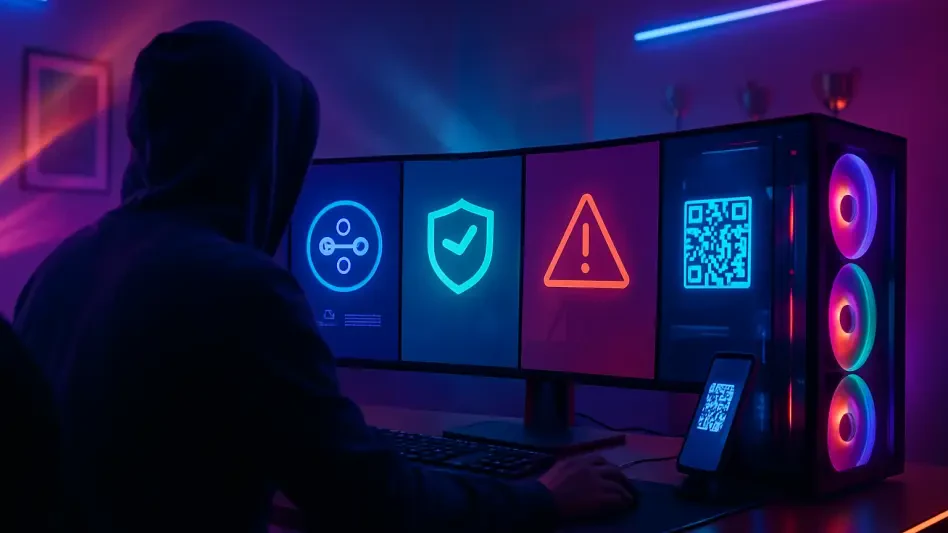In March, the Singapore Police reported a significant increase in phishing scams falsely associated with EZ-Link or SimplyGo advertisements, resulting in substantial financial losses. Such scams involve fraudulent advertisements on popular social media platforms like Facebook and Instagram, enticing victims with too-good-to-be-true promotions such as “unlimited travel” for as low as S$3. These clever tactics, enticing at first glance, quickly lead unsuspecting users into dangerous territory as they are redirected to deceptive websites seeking their sensitive financial information.
Modus Operandi of Phishing Scams
Deceptive Advertisements
These scams start with sophisticated ads that promise incredible offers, drawing users’ attention and prompting them to click the link. Once clicked, the users are taken to phishing websites that mimic the official EZ-Link or SimplyGo sites, complete with logos and authentic-looking designs. The false assurance of legitimacy leads the victims to unwittingly provide their credit or debit card details and One-Time Passwords (OTPs).
Another prevalent tactic includes asking users to participate in benign-seeming activities like online games or surveys in exchange for the promotion. These activities are a smokescreen, leading to a fraudulent endpoint where the users are informed of their “win” and then asked to provide card details to cover the nominal fee. As a result, unauthorized transactions, often in foreign currencies, start appearing in their bank statements, and the scam becomes clear only after financial damages are incurred.
Recent Trends and Historical Context
This spike in scams is not an isolated incident but part of a broader trend seen over recent years. In late 2024, there were similar phishing scams promising a year of free public transport for S$9, causing significant losses with 17 reported cases amounting to over S$19,000. The recurrence of these scams signals a persistent threat and a necessity for increased public vigilance.
The broader trend of rising fraudulent activities is concerning. February 2024 data showed scams generated S$1.1 billion in losses, a substantial 70.6% increase from the previous year. The number of scam cases also saw a sizable rise, reaching 51,501 cases, highlighting the ongoing challenge of combating these deceptive tactics.
Official Responses and Public Guidance
Law Enforcement Actions
In light of these incidents, the authorities are taking stringent measures to counteract the rise in phishing scams. The Singapore Police have reiterated that genuine promotions are only conducted through verified channels. They stress the importance of verifying the authenticity of apparent deals through the official SimplyGo website or verified social media pages.
Furthermore, it has been clarified that SimplyGo does not offer “S$3 unlimited travel” deals, debunking any such claims found in dubious advertisements. This official clarification aims to guide the public in recognizing authentic from fraudulent offers, thus preventing future victims from falling into these cleverly laid out traps.
Public Awareness and Preventive Measures
To mitigate these scams, the public is advised to exercise caution online. Avoiding clicking on dubious links and refraining from sharing bank details or OTPs with unverified sources is crucial. Verifying the legitimacy of promotions through official websites remains a paramount step in safeguarding one’s financial credentials.
Suspicious activities should be reported immediately to the police to enhance the investigative efforts and prevent the scam from spreading further. Additionally, for comprehensive information and guidance, individuals are encouraged to visit the ScamShield website or contact the ScamShield Helpline at 1799. This proactive approach empowers individuals with the knowledge to defend themselves against cyber threats.
The Path Ahead: Vigilance and Proactive Measures
In March, the Singapore Police reported a notable surge in phishing scams falsely linked to EZ-Link or SimplyGo advertisements, causing significant financial losses for many. These scams typically feature fake ads on widely-used social media platforms such as Facebook and Instagram. Scammers lure victims with seemingly irresistible deals, like “unlimited travel” offers for as little as S$3. At first glance, the offers appear highly appealing, but they quickly lead unsuspecting individuals into risky situations. The victims are then redirected to fraudulent websites designed to extract their sensitive financial details. These deceptive sites often look genuine, increasing the risk of people unwittingly providing personal and financial information, including credit card numbers and banking details. The Singapore Police have urged the public to exercise caution and remain vigilant when encountering deals that seem too good to be true. Ensuring that any financial information is only shared on secure and official websites is crucial in avoiding such scams.








